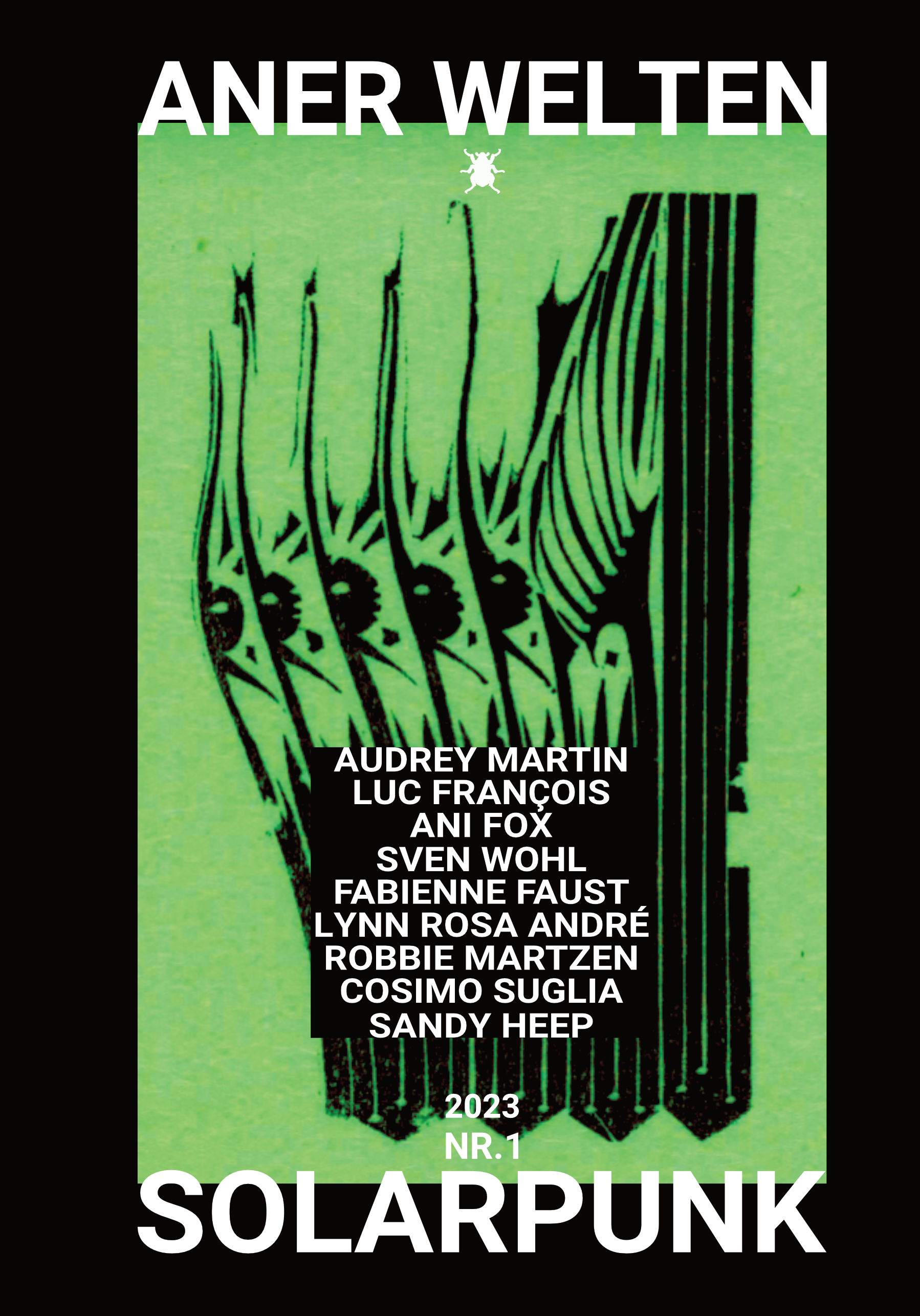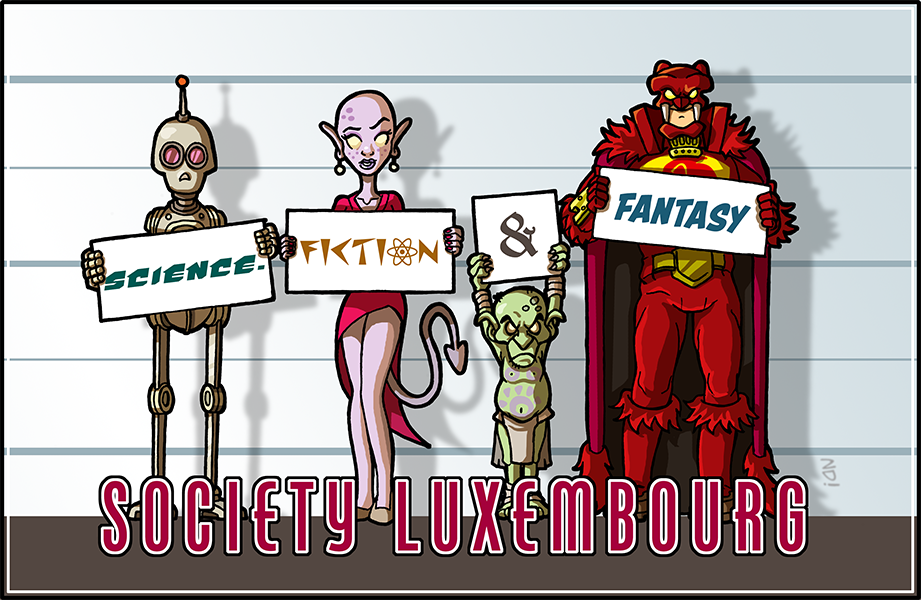SOLARPUNK: Summer Flakes

[by FABIENNE FAUST]
The oval pills were to be found in supermarkets, their flashy yellow and purple packages neatly stacked in wooden crates. Winter sun was my brother Jake’s favourite. It contained a special blend of lemon zest and vitamin D. My mum went in for Summer Flakes. She claimed that the tartness of the antioxidants reminded her of blackcurrant. There were days when people would harvest those berries to make jam, she’d reminisce. She’d rant on about the shrubs that used to grow in her grandmother’s garden against the walls of the old smithy where granddad worked. We’d sit at the table, gulp down spoonfuls of steaming breakfast rice and stare at the jagged line of Oregon pines that blocked the view into our neighbour’s garden. Our faces must have borne the patient, rather placid look of the polite but disinterested listener. Hearing our mum talk about gardens and fruit and streets blanketed with thick white snow, and days so hot, their skin would crease and tan under the sun’s invisible rays, made me yawn, smile in polite disbelief.
Though our elders kept commenting that we missed out – one of their favourite phrases – our childhoods didn’t seem miserable. We had conservatories, I mean, in case we ever truly felt bereft of things like roses or orchards, or butterflies.
I remember Miss Margie, our elementary school teacher, taking us to one of those expensive greenhouses, now desolate places, overgrown with ivy and thick vines that never bring forth any grapes. I can still picture my friend Moira’s tiny hand reaching out for a peacock butterfly’s dark wings, brownish red with a blue eye on either side of each scaly triangle. The teacher would chastise Moira for trying to catch an insect that was that close to extinction and we would huddle together and swear in hushed outrage never, never to take our own children or relatives to those dreadful places once we had reached decision-making age.
Conservatories were museums of sadness. The soil on both sides of the gravel was littered with the petals of loss. You could almost taste the bitterness, like sour berries clinging to your lips. The lights were too bright, the butterflies: tiny fluorescent mirages. Our palms were blistered from being slapped each time they reached out to catch any of those fluttering creatures. “Visiting the country’s greenhouses is like going to a war museum with someone whose father is a veteran,” our mate, Julian once mused. Julian’s family was from a war-torn country. “The exhibited memorabilia may not mean anything to you, but to those involved all this signifies resistance and incommensurate pain. Forget about the butterflies, the odd plants and funky flowers. They were never meant to become exhibits. For the activists they were part of a reality that had slipped out of hand.”
And so it was that we learnt to nod politely but detachedly when the elders commemorated their ‘seasons’. For that was what it all came down to. They were deploring the sameness of our present-day existence, the thick mud that was coating our Wellingtons and had to be scraped off on thresholds, the constant drizzle that glistened on our yellow oilskins, the occasional slush in our hair – when a car (we still had those) accidentally raced over a pothole while one of us was trying to cross the road.
Who had claimed that rain-soaked faces in a suburban landscape looked like petals, Ezra Pound, I believe? There was no poetry to be found in a sky that hung, invariably bleak and cloudy, over a city of glass and concrete and steel. The rooftop gardens, which they had gradually started to plant as an alternative to the conservatories, were invisible from down below, smothered by a thick blanket of smog that made it difficult for the solar panels to capture the sun’s rays and convert them into electricity. Anyone who had known more colourful days secretly longed for the ever-changing setting of lore.
It had been our mum, bent over a steaming pot of boiling rice – what else is there to prepare? –, rice grows cheaply in this mucky weather – who’d told us about those halcyon seasons. “Autumn had its colours, you mark my words,” she’d assert, “the vegetation was lush and varied. Life used to be so much more interesting than it is now. Now the only trees left are evergreens, dark spruces that enclose everything!” She’d loved winter best. Hard to imagine a city, the same city, buried in white! Flakes like cotton candy falling from the sky, dogs playing fetch with snowballs so soft they would melt in their mouths. The fountain in the main square: a chandelier of icicles. Pigeons dancing an odd dance on the slippery pavement, being rewarded with bread crumbs by pedestrians in duffle-coats. “Seasons were antidepressants,” our mum would rant on dreamily, “the certainty of sameness kills all expectation. One day all this rain will soak up the world that contains us. We’ll become jaded like those people on Midwinter Avenue.”
The streets and avenues of the city bore names that reflected bygone days. My family, for instance, lived in the gentrified August Hills. Obviously, this was as far away as it gets from January Dawn, my classmate, Peet Baker’s neck of the woods.
Peet lived in a flat which he shared with his dad and younger sister, Jule. The area of the city where they had come to settle was said to be an especially unwelcoming one. Narrow cobble-stoned alleys, which had once been the scene of a terrible accident, wound themselves, dark and disquieting, around closed-down stores and shady cafés. No one who could help it chose to live in that area now, unless they were grindingly poor, unable to afford a mortgage or the skyrocketing rent elsewhere.
That August I was working for a research company called Response. It was my duty, as it was Moira’s, who’d applied for the same temporary employment, to show up at people’s doorsteps and enquire about their beer drinking habits. Did they go in for Belgian malt or German lager? Were they keen on local brands? Beer had become our country’s gold. Seasonal hot streaks dry out the cone-shaped hop flowers, enhancing the bitter flavour of the acids. This completely wastes the flavour of a good malt. Precipitation, on the other hand, is a godsend since barley soaked in water is known to create the best ale in the world. The participants had to justify their choices. They were then invited to listen to a number of adverts. If a jingle sounded familiar, it meant that the publicity had stuck with them. Eventually, we had some personal questions for each interviewee. We enquired about their lifestyle, marital status, family size, income and leisure activities. Unfortunately, Moira and I had been allotted very different streets. While my mate was due to interview the people who lived in Crocus Avenue and April Blossoms, I was getting lost in the labyrinth of alleys that make up January Dawn.
I met Peet’s father in their dimly lit street-level salon dubbed ‘Crazy lengths’. Mr Baker was trying to sell a wig to a pale-looking lady whose hazel eyes scrutinised me in what looked like silent accusation. I stood on the threshold in my Wellies, scraping greyish mud on a rug that was already coated in slush. “Sorry,” I uttered over the sound of a speaker’s voice. There was a small brown radio, vintage style, there was a barber shop’s pole with a helix of coloured stripes above the till, there were salon chairs, and a sweet familiar smell of soap and shaving cream and ground coffee – some places never change. “I apologise for the inconvenience, Mr Baker. I’m here for a research project.” From a cracked mirror in its gilded frame on that off-white wall two pairs of mouths were gaping. The silence in the room felt awkward. Then the father’s face left the mirror. He turned towards me: “You’re in Peet’s class, right? Sarah, is it? He’s upstairs, you may walk through here! Don’t be shy!” His hand beckoned me through a side door which led into a stairwell. “Just hurry up there! We live on the fifth floor! Baker. Third door on the left.”
The skinny boy who opened the door for me had once allowed me to cheat in a biology paper. I remembered the scene all too vividly. He’d boldly pulled the course book out of his school bag, flicking through it with his toes, until he’d found the page that neither of us had been able to remember – a complicated unit about micro seasons in Japan. If they ask us to remember such weird, unfathomable things, they should be prepared for us to cheat. How else can anyone pass that test?, Peet had whispered apologetically after we’d handed in our papers. Unfathomable. What kind of a word was that? Now he stood before me the way he did at school, in his socks. (You can’t sit in a classroom all day, wearing dirty boots).
“Hi,” I said. “Your father told me I should come up here.” He lingered there like a cat, staring, not moving. Frightened? “I’m doing this holiday job. Have to ask people about their beer drinking habits.” Did he drink beer? All young males do, I told myself. Like everyone else I had been drilled to adopt the binary thinking of lore: after their tournaments, while joining their pals on a pub crawl (Diekirch is good for you, Drei Bier ist auch ne Schmier▴-), when supervising the junior scouts, Wëllefcher▵ or what did they call them?, when exploring first love.
“I don’t drink beer,” he replied and it sounded formal, like, I take tea, my dear▾, lines from an old, old song. Very out of place. It was then that I noticed the small kitchen or was it a makeshift bedroom? There was a mattress on the floor, next to the table, stove and three chairs. A bicycle hung on the ceiling and a little girl – now I noticed her – Jule, stood in the doorway that led to an adjoining room.
“Daddy sleeps in the kitchen, so he doesn’t disturb us when he comes home late from work, Peet and I sleep in here. Do you want to view our bedroom?” It was as if the little girl had read my mind. There she stood, beckoning me over into an already brittle privacy. I slowly shook my head.
“We, we don’t consume alcohol in this house, because of – well, because of our mum,” Peet’s apologetic voice was winding its way into my thoughts. “But I can fake that survey for you, why not? Better not dig too deeply into people’s drinking habits in this area, Sarah,” he advised.
He did fake the survey. We sat on the edge of Jule’s bed, sipping hot chocolate. Cocoa – at least its powdery variant – could still be imported rather cheaply from places that now had to cope with damage of a different kind. Concurrent heat waves had dried out the soil in certain areas of Africa, now porous and erosive, mercilessly exposed to floods. There was no telling how long it would take until the sweet, exotic treat would become obsolete. Peet told me that she (their mum) had enjoyed every brand, especially Battin because it had long been the most affordable.
“When you are hooked, Sarah, you do not care if it is Battin, or Bofferding or Mousel. Anyway, beer does so little for you, there’s quicker ways of getting plastered! But – er, for the sake of that research of yours, let’s give credit to the Belgians!” He made up a family income, a bigger flat, leisure activities. “Walking, yes, she did a lot of walking, my mum did, especially after she’d lost her license,” We lapsed into an uncomfortable silence then, which I broke by making them listen to the ads. Little Jule guessed a few of the jingles. They showed them during children’s TV shows now – hence monetising the hell out of bored parents, right? Hop flowers, along with rice, were among the few plants that still grew abundantly under that rain. There was so little left to advertise for now: yellow oilskins, alcohol and vitamin supplements.
When I had finished interviewing them, Peet got up and asked if I wanted toast. “That’s what you did in the old days,” he elaborated, “whenever you had someone in the house, say a plumber or a salesperson – don’t worry, you don’t fall into that category, Sarah,” he chuckled, “you’d offer them a drink and a snack. ”
He collected our cups. Their porcelain edges clattered briefly as they rubbed against each other. It was warm in the kitchen, though we could still hear the drizzle of the rain, its metallic clank as it hit the gutter. I remember turning to Jule to help her spread artificial jam on the bread that her brother had just fished out of the broken toaster with the tines of a fork.
“Can’t you feel it,” she asked?
“Feel what, Jule?”
“Well, this. This – spatter of orange sunlight on your neck!” Jule advanced a soft hand, rather like someone brushing off an insect from an item of clothes. No one spoke for a while. Only the tattoo of the rain and a scream coming from somewhere in the darkening yard were audible. It dawned on me that I would have to be on my way soon. How I dreaded murky streets at dusk.
“Oh, yes,” the brother agreed, “though rather cold. Definitely a winter sun, for light, not for warmth.” Peet’s hushed voice sounded like a crackling of leaves. He rambled on, handing me another slice of partly charred bread:
“Jule and I often play pretend. It’s a game I made up for my sis!” Jule eyed me self-consciously, “We pretend there are seasons, for example. Just as we pretended to enjoy chatting about alcohol for your sake.”
For once, I pretended to be a well-mannered guest. I was mindful not to drop crumbs on the floor. I sat there chewing, not talking, thinking of the winter pigeons that my mum had told me about, perching under the icicles of the frozen fountain. I pictured dogs that chewed on snowballs, saw kids sticking their tongues out to catch cotton candy flakes. Suddenly all this reminiscing made sense to me: the weight of loss passed on from ear to ear. As I emerged from my thoughts, ready to take in the small kitchen once again, the darkness barging in through the single-paned windows, I blurted out: “It’s snowing, yes, I believe it is. Come on, Jule, Peet, put on your duffle-coats!”
For a moment they stared at me in disbelief, or uncertainty. The cat that isn’t sure whether you’ll pet or pounce. But I was already slipping on my Wellies. Later, as we showed up in the salon, announcing that we were going to take a walk in the snow, two unexpected smiles lit up in the mirror. “Of course. You hop on! Make sure to wear something warm!”
I had a sense that the adults were longing to follow us – as we set out into that snowy summer’s night.


